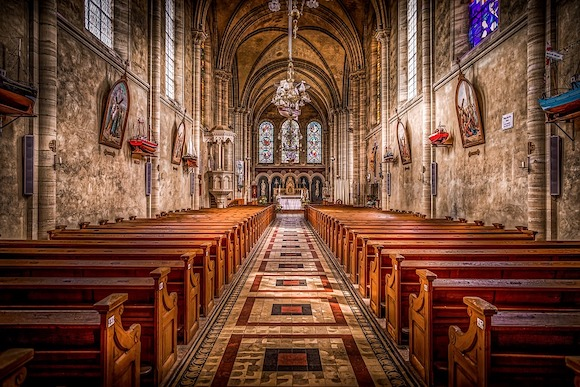Religious Tolerance in an Age of Secularism
Religious diversity is a global challenge that can contribute to, at worst, violent and intractable conflict. Even where extreme forms of conflict are absent, modern societies find it challenging to deal with religious diversity and often consider the presence of different religious groups a threat to their social cohesion. The large-scale migration from Muslim majority societies to historically Christian but increasingly secular European societies, as well as allegedly religiously motivated terrorist attacks in major cities around the world have brought tensions between religious groups to the forefront of societal and political debates.
Over the past decades, religious diversity in the Western world has tremendously increased due to large-scale migration of religious minorities (e.g. Muslims, Hindus, Buddhists and Sikhs) to countries where they were not traditionally present. Moreover, tremendous religious changes have taken place among non-migrant populations in industrialized societies. The most apparent is the decreasing number of affiliates to established religious communities. Citizens who said farewell to these religious communities contribute to religious diversity by searching alternative religious outlets (e.g. Eastern religions or individualized forms of spirituality) and by engaging in more ‘fuzzy’ forms of religiosity.
One major challenge of this increased religious diversity is what some argue to be the intrinsically divisive and ultimately dangerous nature of religion. Proponents of this position argue that religion is antithetical to tolerance of religious others, as religious communities can only survive by defending clear boundaries. To protect social cohesion, religion therefore has to be at least privatized, and ideally completely abandoned. An equally well established counter-position presents religion as the cornerstone of tolerance. Since key teachings of all major world religions propagate the unity of all mankind and respect for God’s creation, true believers can be expected to be among the most tolerant. From this perspective, intolerant forms of religious beliefs and practices are misguided and explained by human motives that can be attached, yet are external, to religion.

The conference Religious tolerance in an Age of Secularism aims to discuss this seemingly paradoxical relation between religion and tolerance. It is part of the project ‘The global challenge of religious diversity’, funded by Utrecht University’s Centre for Global Challenges (UGlobe), which aims to promote an exchange of scholarship from multiple disciplines concerning the conditions under which religion relates to greater tolerance and the promotion of human rights, and when it leads to intolerance and a threatening of human rights.
The event will start with a public lecture by Jocelyne Césari, professor of Religion and Politics and Director of Research at the Edward Cadbury Centre of the University of Birmingham and Visiting Professor of Religion, Political Violence and Peace Building, Harvard University, in the afternoon of Wednesday, 2 December. This will be followed by a one-day conference on Thursday, 3 December. Eleven contributions have been organised into three different panels, focussing on gender, secularism and state and non-state actors. Each panel brings together expertise from multiple disciplines and as such, the program will tackle the subject of religious tolerance in an age of secularism from multiple perspectives.
- Start date and time
- End date and time
- Registration
Register online

